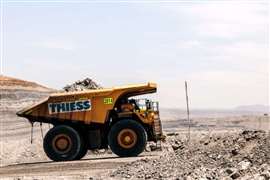European construction output fell in September
17 November 2011

Europe's construction output fell by 1.3% in the Euro Area and by 1% in the whole of the EU (the EU27) in September compared with August, according to the latest figures from Eurostat.
However, output grew marginally year-on-year. Compared with September 2010, construction output in September this year was up 0.4% in the Euro Area and 0.6% in the EU27.
The largest month-on-month increases were registered in Slovenia (7.8%), Poland (4.1%) and Slovakia (3.9%), while on an annual comparison, the biggest growth in output was recorded in Poland (17.1%), Sweden (6.3%) and the Netherlands (5.2%).
However, the biggest declines from August to September this year were registered in France (5.8%), Portugal (5.1%) and the UK (2.3%). And, compared with September 2010, the largest annual declines in construction output were recorded in Slovenia (17%), Bulgaria (11.5%) and Portugal (10%).
Eurostat said output from the building construction sector decreased 0.6% in the Euro Area and by 1.5% in the EU27 from August to September, but increased on an annual comparison by 0.3% in the Euro Area and remained stable year-on-year in the EU27.
Meanwhile, civil engineering output fell 0.8% month-on-month in the Euro Area in September, but rose by 0.2% in the EU27. Compared with September last year, the sector remained stable in the Euro Area but rose by 3% in the EU27.






